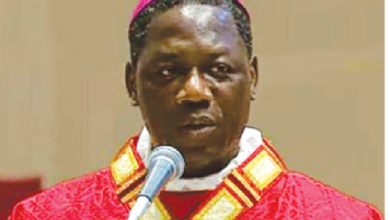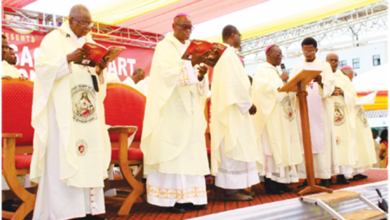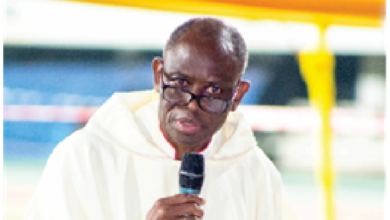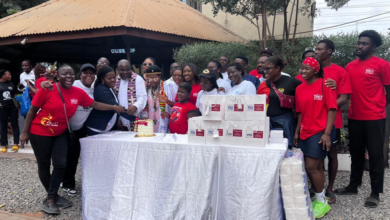Bishop Asare Calls for Greater Youth Involvement in Church

In a passionate address during the Holy Spirit Cathedral’s Homecoming event in Accra, Most Rev. Anthony Narh Asare, an Auxiliary Bishop of Accra emphasised the critical importance of integrating children and youth into the fabric of the Catholic Church.
Speaking on the theme: Building the Church and the Archdiocese: A Call to Return Home, Bishop Asare highlighted the need for a paradigm shift in how the church views and involves its younger members.
The Bishop recounted personal experiences that underscored the resistance often faced when attempting to prioritise youth participation. He shared an anecdote about instructing elders to create seating for children at the front of a particular Parish event, only to have his directive undermined by some senior church members. This incident, according to Bishop Asare, prompted intervention from the Archbishop, Most Rev. John Bonaventure Kwofie, who insisted on the children’s prominent placement, stating, “They are very important.”
Bishop Asare advocated for a change in terminology, suggesting that “Sunday school” be replaced with “missionary children” and emphasising the concept of youth as “the future church.” This linguistic shift, he argued, reflects a more empowering and forward-thinking approach to youth involvement.
The Bishop also addressed the inconsistency in adult attitudes towards youth participation. He noted that many who now resist youth involvement often fondly recall their own experiences of being actively engaged in church activities during their younger years. “What you benefitted from, we are not [providing],” he pointed out, highlighting the irony of this generational disconnect.
The importance of nurturing youth involvement was further emphasised when Bishop Asare commended the Cathedral Administrator and Parish Pastoral Council for their efforts in involving young people in various church roles. He stressed that this inclusion is vital for the future of the church, as it ensures that the next generation gains the necessary knowledge and understanding of liturgy and faith practices.
Bishop Asare’s address also touched on the historical significance of youth and community involvement in building the church, both literally and figuratively. He reminded the congregation of how even schoolchildren contributed to the construction of the Holy Spirit Cathedral many years ago, underscoring the long-standing tradition of community-wide participation in church affairs.
The Bishop outlined numerous roles that children and youth can take on in church activities. In the realm of liturgical participation, young people can serve as altar servers, readers or lectors. Musical involvement is another crucial area, with opportunities in youth choirs, music groups, and instrumental performances during services.
The digital age offers new opportunities for youth involvement, from operating sound systems to managing the Church’s online presence. Leadership development is fostered through participation in youth councils and committees, while pastoral care allows youth to connect with elderly or sick parishioners under adult supervision.
Youth can also contribute through evangelisation efforts, artistic endeavours, environmental stewardship, and participation in interfaith and ecumenical activities. These diverse roles not only engage young people in the present life of the church but also prepare them to be future leaders and active members of their faith communities.
The Bishop’s message was clear: the Catholic Church must actively embrace and involve its younger members to ensure its continued vitality and relevance. By nurturing the faith and participation of children and youth today, the church invests in its leaders of tomorrow.
From Innocent Samuel Appiah



